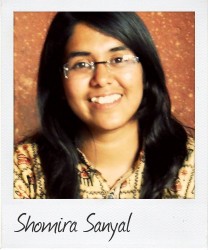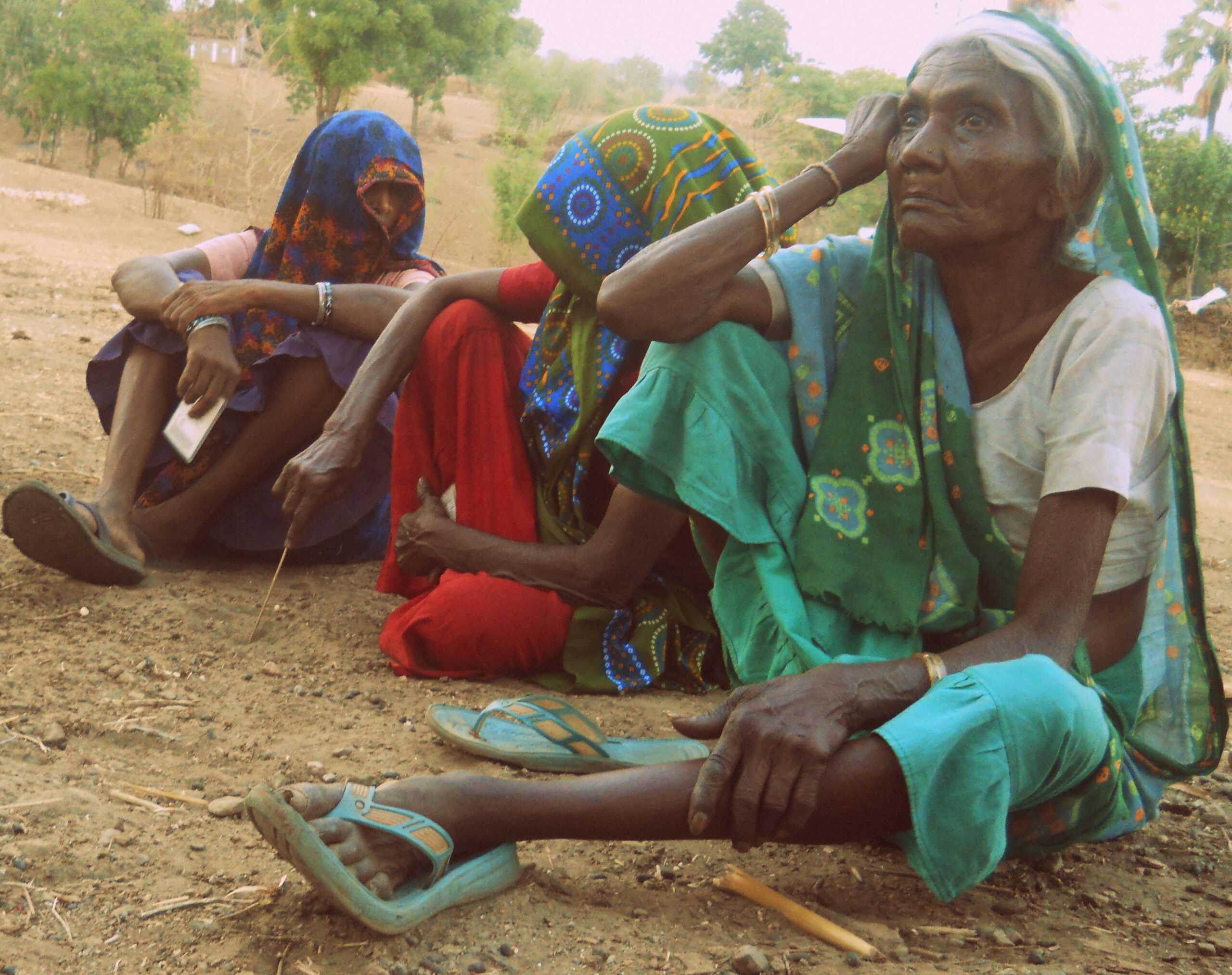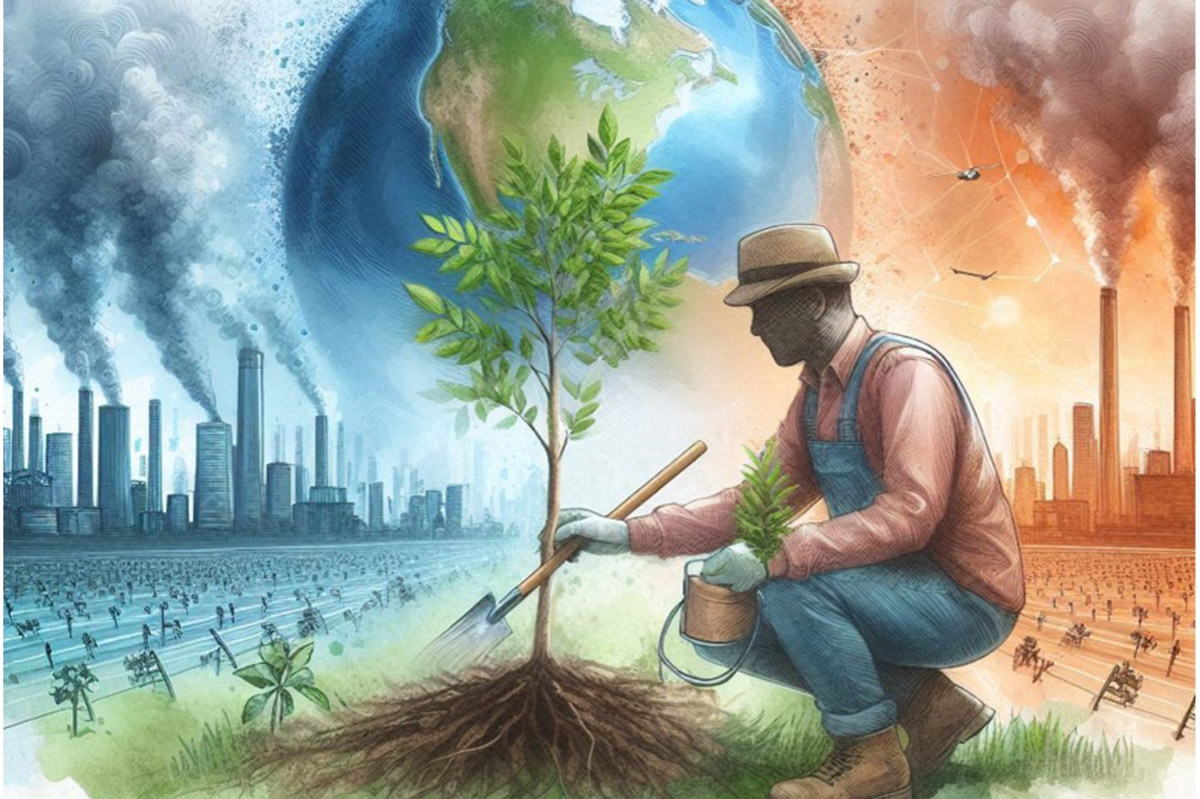"Universal social security pensions for the elderly"
July 9 Old age brings hardship for those who fall below the poverty line, writes Shomira Sanyal, 20, a Commonwealth Correspondent from New Delhi in India, who argues that existing pension plans should be revised to help the poor lead more dignified lives.
Old age brings hardship for those who fall below the poverty line, writes Shomira Sanyal, 20, a Commonwealth Correspondent from New Delhi in India, who argues that existing pension plans should be revised to help the poor lead more dignified lives.
Raniben[1], residing in a village in Gujarat, is more than 70 years old. She typifies the elderly – frail, wrinkled, withered and aged. She has children and grandchildren, but her husband is no more. What is so different about Raniben, one might ask. The answer lies in the harsh reality that she faces everyday: she has no means of financial assistance and has to eke out a living for herself, one day at a time, despite her physical condition.
Raniben represents the plight of many poor, elderly citizens in the country – people who fall below the poverty line, largely belong to the unorganized sector and have no means of financially sustaining themselves after the age of 60. While a Raniben may still have one of her daughters struggling to make ends meet for the two of them, in many cases the old do not have any family members living with them, or are neglected by those they have. The fact that Raniben owns an extremely tiny piece of land, which is barely enough to give her some agricultural produce that she can sell in the market, puts her in a marginally better position than several others. Property and land ownership are important factors in determining the security that people enjoy, and it is no different for the elderly. Sadly, many aged persons have to struggle to make ends meet even when they cross the age of 70 or 80 years, in the absence of any financial, physical or social support.
Under the larger framework of the National Social Assistance Programme (NSAP), the government runs a number of Social Security Pension Schemes at the state and national levels. The three major pension schemes implemented at the national level are the Indira Gandhi National Old Age Pension Scheme (IGNOAPS), the National Widow Pension Scheme (IGNWPS) and the National Disability Pension Scheme (IGNDPS). Through the IGNOAPS, the Centre allocates a minimum payment to those above the age of 60 years, and a supplement to those aged 80+ years, the main criterion being that they have income below the poverty line. Roughly, 1.97 crore people are covered under the IGNOAPS. It is left to the discretion of the state governments to add to this minimum amount, thus the final amount varies from state to state.
However, there has been a huge outcry over the amount given to citizens under the various pension schemes. Civil society organisations and movements have strongly opposed the meagre amounts, arguing that it is not enough to sustain people for a week in today’s time, let alone a month! Also, problems of delayed payments, incorrect classification, red tape, and fear of authorities, have been responsible for marring the benefits of even receiving a constant amount and have often left people helpless.
Raniben has been a victim of all of this: despite having applied for her pension, she has not received it and has had to go through a number of “official procedures”, almost giving up in the process. Those who need rest and peace in their old age, or are in need of assistance because of disabilities or other unfortunate conditions, should be able to live their lives with dignity.
Pension Parishad, an initiative by a large number of CSOs, has taken up this cause and has been agitating to improve the nation’s pension situation. Their demands are the universalization of pensions; indexing of pensions to inflation bi-annually; increasing the pension amount to not less than 50 per cent of the minimum wage; granting pensions to all eligible citizens; reducing the age limit to 55 years of age, and 50 for women; and including highly vulnerable groups (transgenders, sex workers, primitive tribal groups, etc).
According to Pension Parishad, only those whose incomes are taxable, or those who already receive pensions from other sources which exceed the pensions given under the Old Age Pension Scheme, should be excluded from the process. This is a step towards ensuring more equality, equitability and social justice for and amongst the citizens of the country.
While pensions per se have been largely overlooked as an issue by governments and the public, it is important for the plight of the millions who depend on it to be brought to the fore. Many of us fail to understand the value that even that little amount has to those who are in dire need of financial, economic and social assistance. It is vital that pensions not be viewed as a “burden” or “doles”. These are entitlements and measures towards ensuring a slightly more just and equal society at a certain level, a means of giving disadvantaged sections of society the opportunity of living their lives with dignity and comfort.
[1] – name changed
Photo – Shomira Sanyal
………………………………………………………………………………………………………………
About me:
I am pursuing a Bachelor’s Degree in Sociology at Lady Shri Ram College, New Delhi. I enjoy reading, travelling and meeting people. I have deep interest in developmental work that will improve the lives of India’s marginalized, and have worked in rural India with NGOs and movements on the Right to Information, the Right to Food, the Public Distribution System, and the Mahatma Gandhi National Rural Employment Guarantee Scheme. I believe in the Gandhian saying, “Be the change you want to see”.
………………………………………………………………………………………………………………
Opinions expressed in this article are those of the author and do not necessarily represent the views of the Commonwealth Youth Programme. Articles are published in a spirit of dialogue, respect and understanding. If you disagree, why not submit a response?
To learn more about becoming a Commonwealth Correspondent please visit:
http://www.yourcommonwealth.org/submit-articles/commonwealthcorrespondents/
………………………………………………………………………………………………………………




